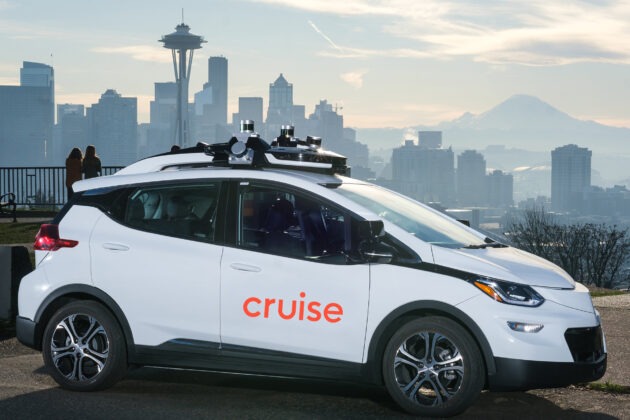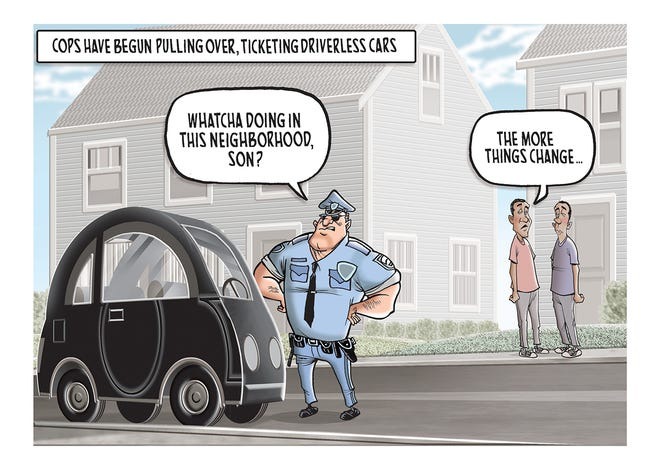Self-driving cars spared traffic tickets in San Francisco

California laws lag behind autonomous vehicle proliferation
San Francisco police state that autonomous vehicles in the city avoid traffic tickets when the driver’s seat is empty, highlighting persistent legal and safety issues with the advancing technology. Public safety agencies and experts note that California law has yet to align with these vehicles, despite their current presence on the roads.
According to SFPD policy, officers can pull over autonomous vehicles (AVs) for violations but may only issue citations if a safety driver is present overseeing operations. Since June 2022, AVs have been allowed to operate within city limits without safety drivers. Officers can issue citations to the registered owner for non-moving violations like parking or registration offenses when the vehicle is unoccupied, but not for violations such as speeding, running a red light, driving in the wrong lane, or making an illegal turn.
Presently, the SFPD clarified that no citation for a moving violation can be issued when an autonomous vehicle is in driverless mode. The statement did not provide details on the reasons behind this decision. The SFPD’s response follows the publication of an internal memo on the subject by the SFPD chief, Bill Scott, as reported by NBC Bay Area.
The exemption of driverless cars from traffic citations underscores concerns among experts that legislation has been slow to adapt to autonomous technology. Unlike other states such as Texas and Arizona, which revised their laws to accommodate self-driving vehicles, California has not taken similar steps. In 2018, Arizona modified its road safety protocols, allowing officers to issue citations to the registered owner of an autonomous vehicle if it violates traffic laws, even without a human present. A 2017 update to Texas law designates the owner of an automated driver system as the operator of the vehicle in case of a traffic violation, regardless of physical presence during operation.
In contrast, California, a prominent market for robotaxis, lacks comparable legal updates. As of August, San Francisco hosted over 500 operational autonomous vehicles between Waymo and Cruise, well ahead of the city’s official expansion approval. This surpasses the 125 autonomous vehicles in Austin, Texas, for instance.
“It’s a significant issue because California is the primary location for the majority of robotaxis operating,” remarked Cassandra Burke Robertson, a law professor at Case Western Reserve University, specializing in liability law related to self-driving vehicles. “It goes beyond just traffic tickets; it involves how we will regulate autonomous vehicles more broadly.”
Expressing uncertainty about traffic tickets for autonomous vehicles, another public safety agency admitted its inability to enforce laws that were non-existent. The California Department of Motor Vehicles stated in a release that as part of the road-permitting process, an autonomous vehicle must be certified to adhere to “all provisions of the California Vehicle Code.” Although the vehicle code mandates that robotaxis comply with traffic laws, it lacks specific clauses guiding law enforcement on handling misbehaving self-driving cars and determining applicable penalties.
The Department of Motor Vehicles acknowledges that autonomous technology is a continuously evolving field and affirms its dedication to improving the regulatory framework to align with ongoing technological advancements.
While the SFPD clarified its inability to issue tickets to autonomous vehicles, the California Highway Patrol did not provide comment on its own policies regarding robotaxis. The Los Angeles Police Department, which permitted self-driving cars in a limited capacity as of October 2023, did not promptly respond to queries about whether autonomous vehicles can be ticketed in the city.

The traffic ticket dilemma arises as San Francisco contends with safety concerns related to driverless vehicles, which were initially introduced to the city on a limited scale in 2022. In August 2023, Waymo and Cruise, self-driving car companies, received approval to expand operations despite controversy, including complaints about vehicles obstructing emergency response teams.
Following the proliferation of these cars, reports from locals described the vehicles causing “mayhem” in the city. Cruise had to withdraw its driverless cars from the streets after a high-profile crash in October, where a pedestrian was nearly killed, leading to accusations that the General Motors subsidiary withheld crucial information about the incident. Waymo did not immediately respond to a comment request, and Cruise, not currently operating in a fully driverless capacity in San Francisco, declined to comment.
The removal of Cruise’s cars from San Francisco streets might prompt autonomous vehicle companies to reconsider their strategies, a positive development for public safety, according to Robertson.


